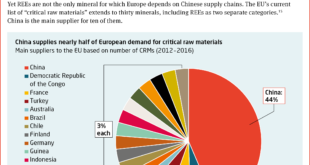Speculative but interesting if you are interested in historical cycles. Hartmann sees the battle for replacement of neoliberalism (Thatcherism/Reaganism, "trickle down") as being between progressivism on the left and populism, which he labels neo-fascism, on the right. Of course, the right labels progressivism as socialism and even communism. So it will be interesting to see this play out in the elections of US elections of '22 (midterm) and '24 (general). The GOP is already positioned...
Read More »Biden’s “democracy summit”–how Marx showed the fake character of capitalism’s concept of “human rights” — ̋ John Ross
Marx put it regarding the purely formal statements of capitalist/parliamentary democracy: “The state abolishes, in its own way, distinctions of birth, social rank, education, occupation, when it declares that birth, social rank, education, occupation, are non-political distinctions, when it proclaims, without regard to these distinction, that every member of the nation is an equal participant in national sovereignty.” But in reality, none of these real distinctions was removed:...
Read More »Climate Change update
Extreme weather events resulting from the changing climate are threatening some 40 percent of the world’s recoverable oil and gas reserves, risk consultancy Verisk Maplecroft has said in a new report.The portion is equal to some 600 billion barrels of oil equivalent, the report’s authors also said. Some 10.5 percent of the global recoverable oil and gas reserves are located in places that were rated as extremely risky under the consultancy’s Climate Change Exposure Indices, while the other...
Read More »International Links — 16 Dec 2021
India PunchlineA Sino-Russian Military Alliance Is Gratuitous (As Of Now)M. K. Bhadrakumar | retired diplomat with the Indian Foreign Servicehttps://www.indianpunchline.com/a-sino-russian-military-alliance-is-gratuitous-as-of-now/Asia Times (disregard the view about debt)Putin, Xi running circles around Biden’s hybrid warPepe Escobarhttps://asiatimes.com/2021/12/putin-xi-running-circles-around-bidens-hybrid-war/AntiWarXi to Putin: Our Relationship ‘Exceeds an Alliance’Ray...
Read More »Central Bank Hawkishness — Brian Romanchuk
The Bank of England hiked today, and the Fed’s dot plot yesterday indicated that rate hikes are expected to hit in 2022. This is a quite different script than the last cycle, although it remains to be seen how many hikes happen before they stall out....Bond EconomicsCentral Bank HawkishnessBrian Romanchuk
Read More »GDP’s Days Are Numbered — Diane Coyle
Ditching gross domestic product as the main gauge of prosperity was always impossible in the absence of broad agreement about what the alternative might be. But as economists and statisticians develop wealth and well-being approaches to measuring economic success, the direction of change is clear.…Project SyndicateGDP's Days Are NumberedDiane Coyle | Professor of Public Policy at the University of...
Read More »China is securing battery metals on the global stage — J.Heller
MericsChina is securing battery metals on the global stageJ.Hellerhttps://merics.org/en/tracker/china-securing-battery-metals-global-stage
Read More »The five laws of stupidity — Richard Murphy
Moron check.Tax Research UKThe five laws of stupidityRichard Murphy | Professor of Practice in International Political Economy at City University, London; Director of Tax Research UK; non-executive director of Cambridge Econometrics, and a member of the Progressive Economy Forumhttps://en.wikipedia.org/wiki/Dunning%E2%80%93Kruger_effect See alsoDunning and Kruger describe a common cognitive bias and make quantitative assertions that rest on statistical arguments. But their findings are...
Read More »Bill Mitchell — Australian labour market rebounds strongly after lockdown ends but still 1.6 million (12.1 per cent) without enough work
The Australian Bureau of Statistics released the latest labour force data today (December 16, 2021) – Labour Force, Australia – for November 2021. With most states now abandoning most Covid restrictions just as the new variant arrives, which evades the vaccine coverage and infection numbers soar to record levels (go figure), the labour market certainly rebounded emphatically. Employment growth was very strong and resulted in sharp falls in unemployment and underemployment. Participation also...
Read More »6 rate hikes coming? Fed will create inflation spiral.
Rate hikes will drive inflation higher.
Read More » Mike Norman Economics
Mike Norman Economics


